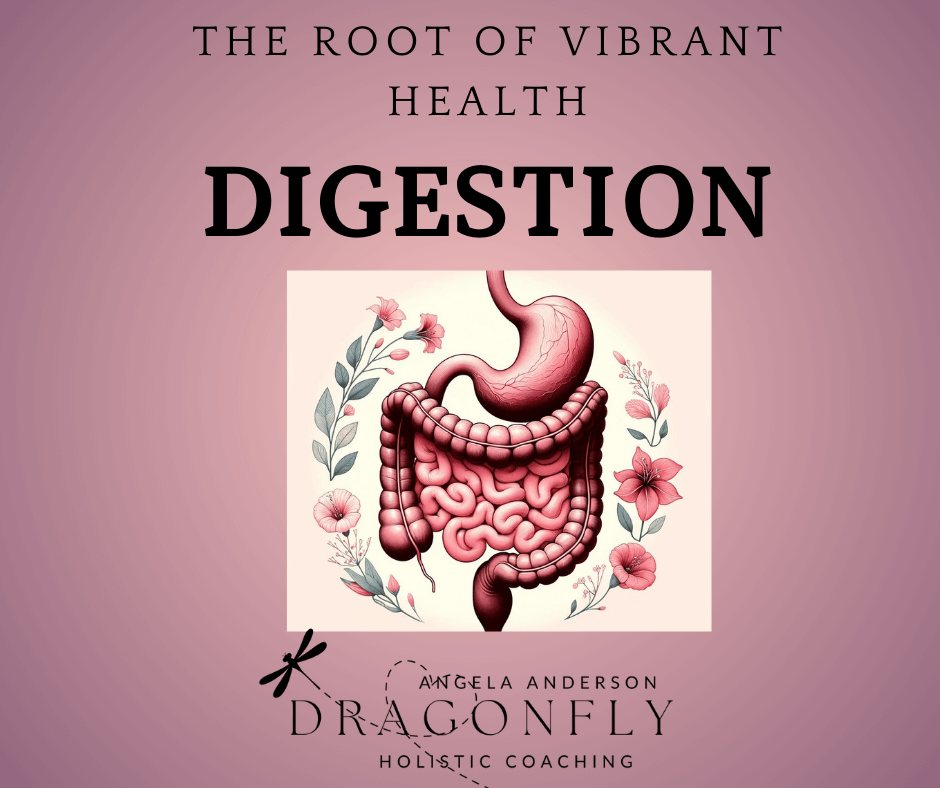Angela Anderson
Digestive Wellness
Where Health Takes Root

Embark on a journey into the intricate world of digestion, where we unravel its profound impact on overall wellness. Delve into the nuances of this vital process, understanding how it influences not just our energy levels but also the resilience of our immune system. Together, we'll navigate through common digestive challenges, offering practical, holistic solutions to enhance digestive wellness. From embracing mindful eating habits to integrating nurturing lifestyle practices, we'll empower you to foster a flourishing gut, the cornerstone of vibrant health.
Diarrhea / Loose Stools
Understanding Diarrhea: A Comprehensive Guide
Diarrhea, characterized by loose, watery stools occurring more frequently than usual, can stem from various factors, including infections, food intolerances, medications, and medical conditions. Viral or bacterial infections in the digestive system, commonly referred to as "stomach flu," can trigger diarrhea by inducing intestinal inflammation and disrupting water absorption. Additionally, certain foods, particularly for individuals with food intolerances like lactose intolerance, can prompt diarrhea.
Various medical conditions may be associated with diarrhea, such as IBS, bacterial infections, SIBO, SIFO, IBD (including Crohn's disease and ulcerative colitis), pancreatic issues, gallbladder disease, chronic stress, and trauma. Medications like antibiotics can upset the balance of gut bacteria, leading to diarrhea, while chronic conditions like IBD, IBS, and celiac disease can cause ongoing diarrhea. Stress and anxiety can also exacerbate diarrhea in some cases.
During diarrhea episodes, hydration is crucial to prevent dehydration, as acute diarrhea often signifies the body's attempt to rapidly eliminate something. Adequate fluid intake, coupled with electrolyte replenishment using water containing fresh lemon and a pinch of salt, is recommended. Consuming easily digestible foods like homemade broth or soup supports nutrient absorption and soothes the stomach. Eating small, regular meals every three hours helps alleviate the workload on the digestive system, while astringent herbs can provide relief.
For managing chronic diarrhea, several strategies can be effective. Identifying and avoiding trigger foods, maintaining a food diary, and steering clear of irritants like caffeine, alcohol, and certain sugars can be beneficial. Increasing soluble fiber intake while avoiding highly insoluble fiber foods is advised. Staying hydrated with water, broths, and electrolyte-rich fluids remains essential. Medications like antidiarrheals and those reducing gut inflammation may be prescribed. Probiotics, stress management techniques, and certain foods like dark chocolate and herbal teas can also aid in managing chronic diarrhea. Persistent symptoms warrant consultation with a healthcare professional to rule out underlying medical conditions or explore alternative treatment options
Symptoms
Loose or watery bowel movements
More bowel movements per day than normal (1-3 times per day is normal)
Urgency to eliminate
Incontinence
cramping or discomfort in abdomen
fatigue
brain fog
blood or mucus in the stool
Causes
Food Allergies or sensitivity
Lactose or other sugar intolerance
Difficulty digesting fats
Impaired digestion or absorption
infections
Prescription drug use
antibiotics
stress or anxiety
food poisoning
dysbiosis
leaky gut
damaged mucosal lining

Dietary Considerations
1. avoid dairy, fat, sugar, excessive meat
2. Consider sipping on bone broth
3. Consider sipping on green juices or fruit smoothies
4. BRAT Diet (Banana, Rice, Apples, Toast)
5. Therapeutic oat bran or carob
Lifestyle Considerations
1. reclining on back with knees elevated and water bottle or towel over abdomen
2. Drink plenty of fluids (broth, herbal tea, juice, coconut water, water)

Effective management of Constipation involves a comprehensive approach that includes lifestyle changes, dietary adjustments, adequate hydration, and supplementation. Underlying causes must be identified and addressed through tailored treatment plans to improve symptoms and overall quality of life. Consulting with healthcare professionals is essential to receive a proper diagnosis and personalized treatment recommendations.
Functional Testing for Constipation
Why Dragonfly Holistic Coaching?
Personalized Care
When it comes to addressing health complications, the notion of a "one-size-fits-all" solution is not just ineffective, it's potentially counterproductive. Each individual is a unique tapestry of genetics, lifestyle choices, dietary habits, and environmental exposures, making them biochemically distinct. This means that a health approach which yields positive results for one person could prove ineffective, or even detrimental, for another. Functional wellness modalities stand out by embracing this diversity; recognizing that true healthcare must be deeply personalized. By considering an individual's entire well-being, factoring in genetics, diet, lifestyle, and environmental influences, functional wellness crafts solutions tailored to each person's unique needs. This bespoke approach ensures that each individual receives the most effective and appropriate care, underscoring the fact that in the realm of health, there really is no such thing as a universal solution. When I sign a contract with a client, I will work tirelessly by your side until we are able to identify the root cause of your health challenges and develop a sistainable way forward.
Information courtesy of Angela Anderson
Functional Diagnostic Nutrition® health coaches do not diagnose, treat, prevent, or cure any
disease or condition. Nothing we share with our clients is intended to substitute for the advice,
treatment or diagnosis of a qualified licensed physician. Functional Diagnostic Nutrition® (FDN)
Practitioners may not make any medical diagnoses or claim, nor substitute for your personal
physician’s care. It is the role of a Functional Diagnostic Nutrition® Practitioner to partner with
their clients to provide ongoing support and accountability in an opt-in model of self-care and
should be done under the supervision of a licensed physician.







